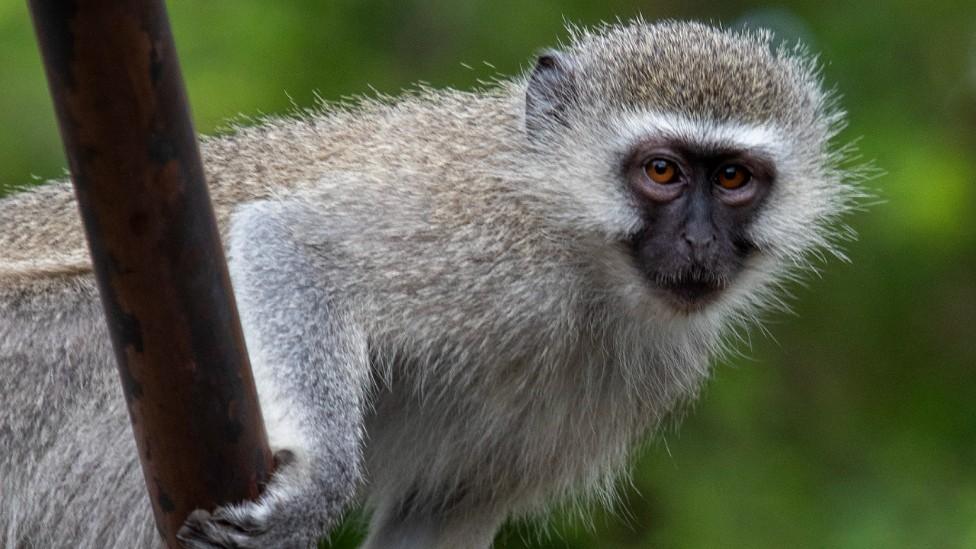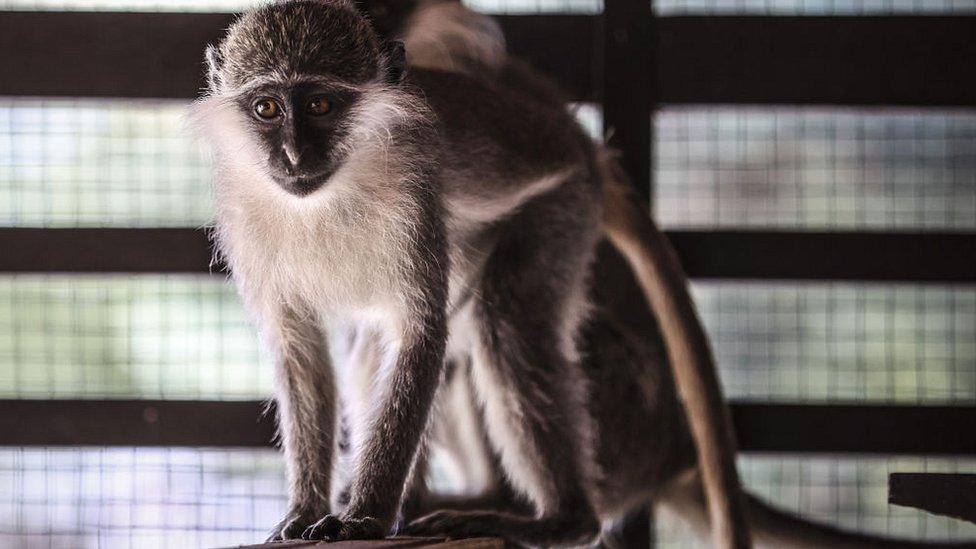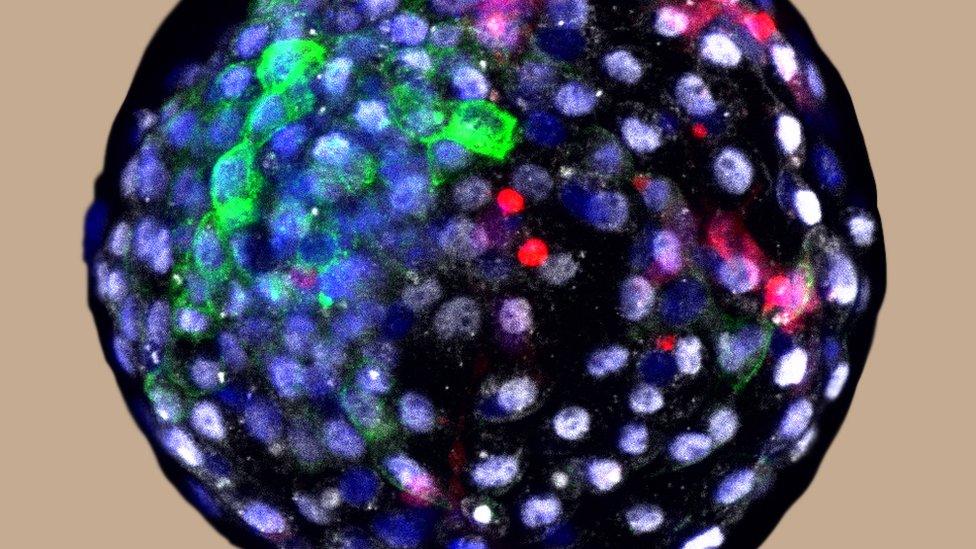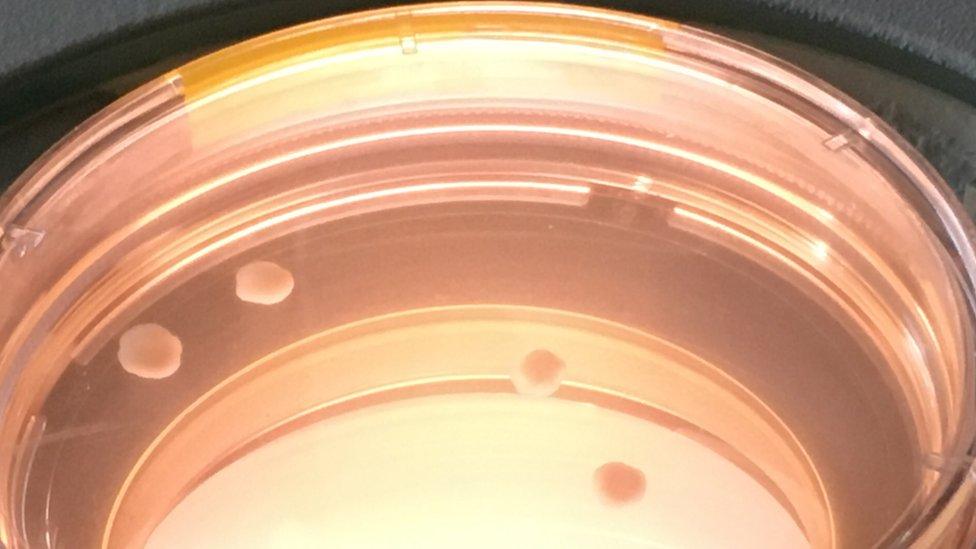Monkey mothers lower body heat to protect babies, study finds
- Published

Vervet monkeys were found to lower, then raise their body temperatures around birth
Monkeys may give birth at night as lower temperatures improve the welfare of mother and baby, a study has found.
A Nottingham Trent University (NTU) study of vervet monkeys monitored 19 births over seven years.
Birthing females were found to lower their body temperatures which may protect the foetus from injury during low-oxygen birth conditions.
The researchers said their findings may have implications for understanding human birth patterns and health risks.

Their small body size may be part of the reason heat is so important
The team said nocturnal birth had usually been seen as a strategy for avoiding predators or to allow mothers to recover from birth and bond with the infant without interference by other monkeys or troop movements.
Dr Richard McFarland, senior lecturer in psychology at NTU's School of Social Sciences, studied the animals in South Africa.
He said: "Our findings suggest that there may be important thermal consequences linked to the timing of primate birth.
"We observed that a mother's body temperature lowers at birth to create a cooler thermal environment that serves to protect the foetus from injury during hypoxic birth conditions.
"It seems reasonable to suggest that the timing of birth will be particularly important for smaller, more thermally-vulnerable species, where birth should be more synchronised to the most thermally-advantageous time.
"This may explain why apes are less committed to night-time birth than monkeys."
Vervet monkeys are also known to consume the placenta after birth which, it has previously been argued, helps replenish nutritional losses from pregnancy, reduce pain and prevent the placenta from attracting predators.
The researchers suggest it may also provide the energy needed to recover temperature post-birth.
Dr McFarland said the study's findings may also have implications for understanding human birth health risks, such as hyperthermia.
The paper is due to be published in the Royal Society journal Biology Letters.

Follow BBC East Midlands on Facebook, external, on Twitter, external, or on Instagram, external. Send your story ideas to eastmidsnews@bbc.co.uk, external.
Related topics
- Published15 April 2021

- Published16 October 2019
